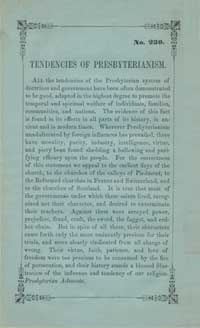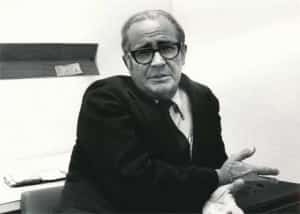We come now to the penultimate chapter of Dr. Kerr’s book PRESBYTERIANISM FOR THE PEOPLE. Feel free to offer comments on where we might go next on our Saturday journeys, but keep in mind that short treatments like these are difficult to find, especially when written by Presbyterians!
[penultimate—that’s Greek for “next to the last”]
CHAPTER II.
PECULIARITIES OF CALVINISM.
The distinctive features of this system of theology are three—viz.:
(1) The supremacy of God in all things;
(2) The total depravity of man ;
(3) God’s election of the saved.
While this system exalts God, it humbles man. It has been the object of many fierce attacks. It has never been popular with the world, yet it has inspired the grandest struggles ever made for the truth and for human liberty. Strong doctrine is required to make strong characters, and strong characters are necessary in the great warfare against sin. What would the Reformation have been without Calvin in Switzerland and Knox in Scotland ? In contending for the doctrines called Calvinistic they worked out the conditions of a civilization grander than any other the world has seen. These doctrines have been called hard, but God made them, and for the salvation of men. We must be brought to feel a sense of our own helplessness; man’s proud spirit must be humbled, and then he is ready to cry out for mercy. The tendency of Calvinistic theology is also to promote the comfort of Christians. When Christians plant their feet upon God’s eternal decree, they may set the world, the flesh and the devil at defiance.
ELECTION AND FREE AGENCY.
Presbyterians also believe in the freedom of man. We are often treated as if we did not; we are accused of teaching that a man can and must do nothing for his salvation. We are called fatalists. But we do believe in the freedom of man; we preach it; it underlies every proclamation of pardon; it is embodied in every invitation of mercy. How man can be free and God supreme is a question which perhaps Michael could not answer; certainly we cannot. We are not bound to answer it. Our duty is to accept all that God reveals, and to trust him for what is not revealed. He has revealed both these doctrines, but not the reconciliation of them. Our ignorance is the cause of the difficulty. “We know in part ” (1 Cor. xiii. 9).
An illustration may help us to understand, not the difficulty, but where it lies—in our ignorance.
Six hundred and forty years before Christ, Thales discovered that the world was round. He is said to have been at that time the only man who knew this great fact. Suppose he had declared to the people, who were in ignorance, “ I can travel eastward, never turning to the right or left, and, keeping straight on, come back to the point from which I set out.” He might have gone farther and said, “By traveling westward I can return to this place without changing my course.” The people would have answered, “Thales, it is absurd! Your two statements contradict each other; they cannot be reconciled, and we will not believe them.” They supposed the world was flat, and in their ignorance it was indeed impossible for them to understand the two statements of Thales; but they were true, nevertheless. The truth of a thing does not depend upon our ability to comprehend it. If Thales had gone on and told them that the world was round, the difficulty would have vanished at once. Before, they “knew in part.” But Thales’s children would have believed him without explanation, because he was their father. So God’s children must believe him, even when they cannot understand.
The Primitive Baptists reject free agency because they cannot reconcile it with election. Some
Arminians reject election because they cannot reconcile it with free agency. But Presbyterians hold both doctrines, confessing their inability to reconcile them because of the finiteness of human comprehension, yet declaring that it is enough for them to know that both doctrines are taught in God’s word. These doctrines, however difficult, are held by four-fifths of the whole Protestant world. Why? Because “THUS SAITH THE LORD.”
“Verily I say unto you, Whosoever shall not receive the kingdom of God as a little child, shall in no wise enter therein.” (Luke xviii. 17).



